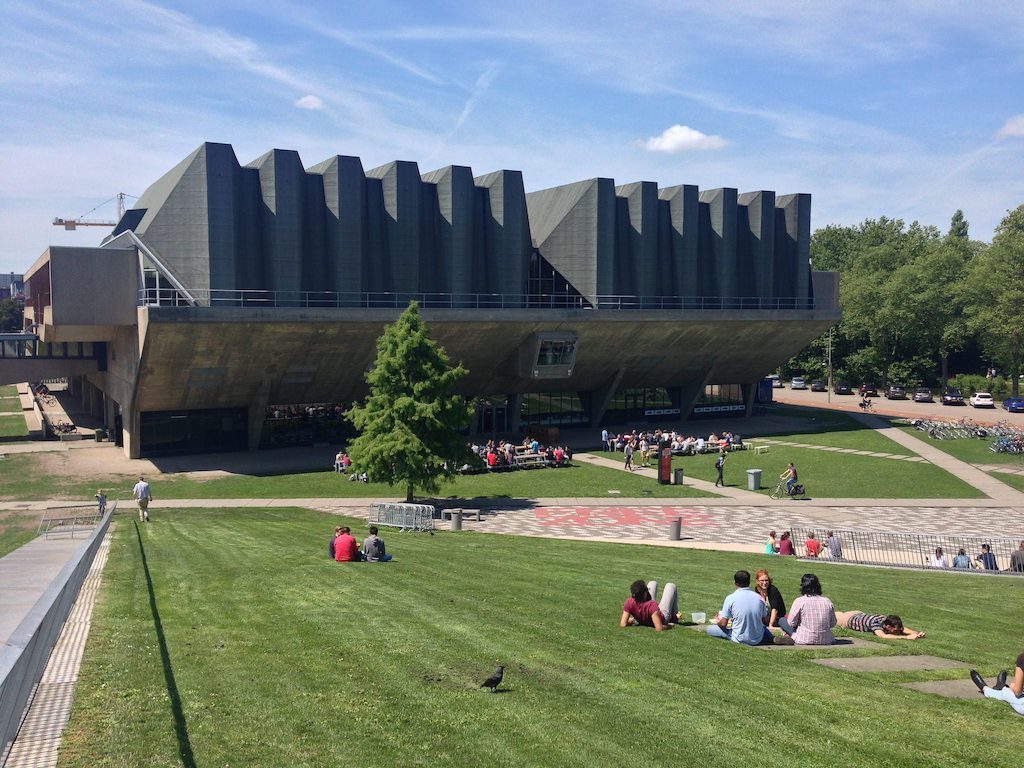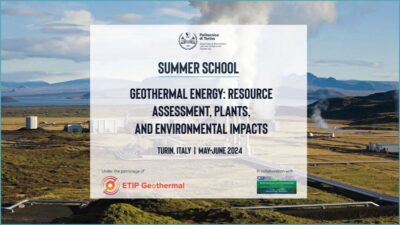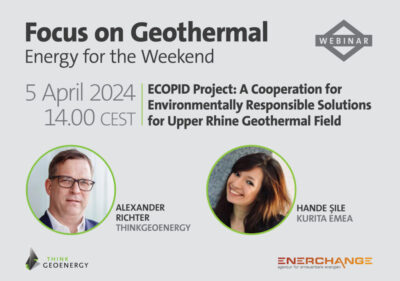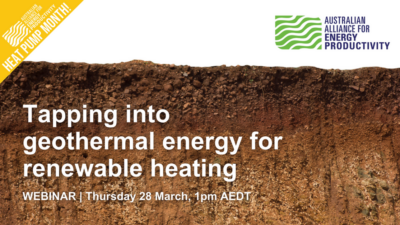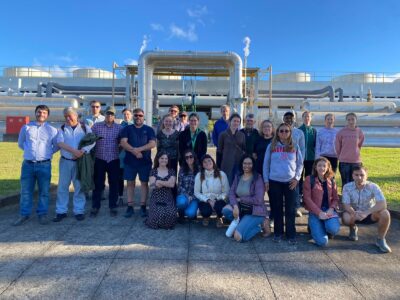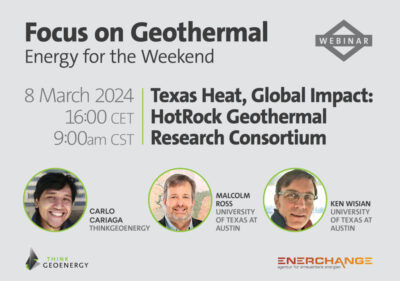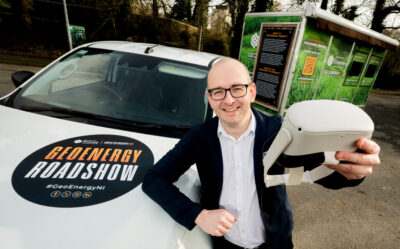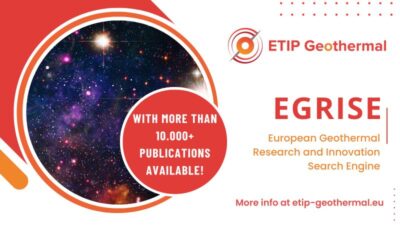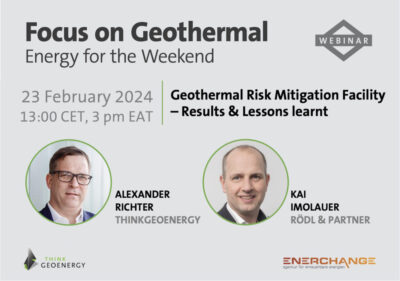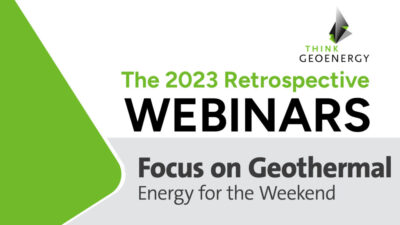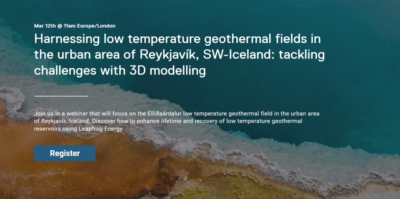Doctorado en Investigación de Energía Geotérmica, TU Delft, Países Bajos
La Universidad Técnica de Delft ha anunciado un puesto PhD en Investigación en Energía Geotérmica en la Facultad de Ingeniería Civil y Geociencias. El plazo para las postulaciones cierre el 31 de Agosto de 2019.
La Universidad Técnica de Delft ha anunciado una posición abierta de doctorado en Investigación de Energía Geotérmica en la Facultad de Ingeniería Civil y Geociencias.
- Nivel: graduado universitario
- Horas de trabajo: 36-40 horas semanales.
- Contrato: <vacío>
- Salario: 2,325 EUR – 2,972 mensuales (a tiempo completo)
- Fecha límite: antes del 31 de agosto de 2019
Facultad de Ingeniería Civil y Geociencias
La Facultad de Ingeniería Civil y Geociencias (CEG) está comprometida con la investigación y educación internacional sobresaliente en el campo de la ingeniería civil, ciencias de la tierra aplicadas, tráfico y transporte, tecnología del agua y tecnología delta. La investigación cubre temas sociales globales y está estrechamente relacionada con la educación, así como con el trabajo de una amplia gama de instituciones de conocimiento. CEG está convencido de que Open Science ayuda a alcanzar estos objetivos y apoya a sus científicos en la integración de Open Science en su práctica de investigación. La facultad de CEG comprende 28 grupos de investigación en los siguientes siete departamentos: Gestión y Diseño de Mecánica de Materiales, Estructuras de Ingeniería, Geociencia e Ingeniería, Geociencia y Teledetección, Transporte y Planificación, Ingeniería Hidráulica y Gestión del Agua.
El Departamento de Geociencia e Ingeniería es parte de la Facultad de Ingeniería Civil y Geociencias y abarca cinco secciones: Geología Aplicada, Petrofísica y Geofísica Aplicada, Geoingeniería, Ingeniería de Recursos e Ingeniería del Petróleo. Dentro del Departamento hay un considerable alcance y estímulo para la investigación interdisciplinaria.
El uso cada vez más intensivo del subsuelo de la Tierra requiere una comprensión detallada de sus propiedades geométricas y físicas. La sección de Geología Aplicada desarrolla conocimiento para cuantificar las heterogeneidades sedimentológicas y estructurales del subsuelo y su impacto en el comportamiento mecánico y de flujo. Adoptando un enfoque multidisciplinario, combinamos el análisis de afloramiento (recientes y fósiles) con herramientas de caracterización y modelado numérico. Los candidatos a doctorado, los posdoctorados y el personal de la sección de Geología Aplicada cooperan en una atmósfera colegial dirigida al desarrollo de tecnología de vanguardia para la producción, almacenamiento y remediación de recursos energéticos. Los candidatos a doctorado son estimulados a presentar su investigación en conferencias internacionales, a publicar en revistas científicas de alto rango y a formar una red profesional internacional. Los graduados de la sección encuentran empleo en la industria y en el mundo académico.
En adelante en inglés dado el tipo de trabajo:
Job description
The objective of this project is to quantify the reservoir properties of Triassic sandstones in Southern Netherlands at depths beyond 1500m in order to assess uncertainty and reduce the risks for future deep geothermal operations. Many Westland geothermal projects at depths between 1500 and 2500 m are successful. However, the Triassic reservoirs are geologically much older and therefore have a higher chance of complicating histories. The TRIAS Westland core (NLW-GT-01) analyses show that Triassic sandstone diagenesis is hampering water flow by a reduced permeability in layers at 4200m depth. It shows that to successfully predict heat production there is insufficient knowledge of these sediments, their mineralogy, local structural characteristics, spatial heterogeneity and diagenesis. We propose an innovative integrated sedimentary, structural and diagenetic study to assess, quantify and map their suitability for deep geothermal exploitation in the southern Netherlands. This work should substantiate if and where new deep geothermal projects in the Dutch Roer Valley Graben will be economically feasible.
Requirements
- Applicants must hold a master’s degree or the equivalent in geology, or must have submitted his/her master’s thesis for assessment prior to the application deadline. It is a condition of employment that the master’s degree has been awarded.
- A strong documented background and interest in sedimentology/stratigraphy, and/or with experience from integrated structural/stratigraphic work will be preferred.
- Candidates who also possess a good understanding of sedimentology/stratigraphy, and/or with experience from integrated structural/stratigraphic work will be preferred.
- Experience from wellbore core analysis is an advantage.
- Experience with any of the following is of potential interest to the project: microstructural analysis and various micro-analytical techniques, porosity and permeability analyses, structurally controlled fluid flow and diagenesis, reservoir/aquifer geology.
- Applicants must be able to work independently and in a structured manner, and demonstrate good collaborative skills.
- Applicants must be proficient in both written and oral English.
- Candidates must be prepared to interact with industry sponsors, although no such previous experience is required.
Conditions of employment
TU Delft offers a customisable compensation package, a discount for health insurance and sport memberships, and a monthly work costs contribution. Flexible work schedules can be arranged. Salary and benefits are in accordance with the Collective Labour Agreement for Dutch Universities. The minimum salary mentioned is the salary in your first year. The salary mentioned as the maximum will be your salary in your fourth year.
As a PhD candidate you will be enrolled in the TU Delft Graduate School. TU Delft Graduate School provides an inspiring research environment; an excellent team of supervisors, academic staff and a mentor; and a Doctoral Education Programme aimed at developing your transferable, discipline-related and research skills. Please visit TU Delft Graduate School more information.
Information and application
For more information about this position, please contact Prof. Dr. M.W. Martinius, e-mail: [email protected] . To apply, please e-mail a letter of motivation, detailed CV, summary of academic record or research experience, abstract of your PhD thesis (1 page), list of any publications, grades list, proof of English language proficiency, and names of three references (in a single pdf file) before August 31 2019 to Prof. Dr. Martinius, [email protected] .
When applying for this position, please refer to vacancy number CITG19.46
Fuente: TU Delft
